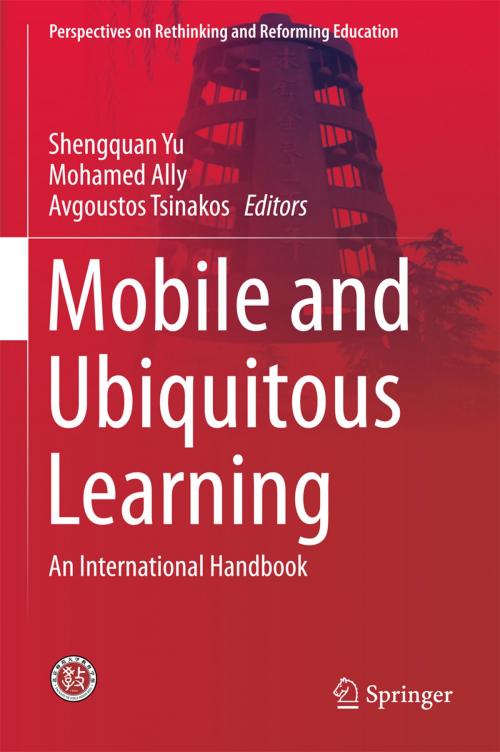Mobile and Ubiquitous Learning
An International Handbook
Nonfiction, Reference & Language, Education & Teaching, Teaching, Computers & Technology, Educational Theory, Educational Psychology| Author: | ISBN: | 9789811061448 | |
| Publisher: | Springer Singapore | Publication: | November 16, 2017 |
| Imprint: | Springer | Language: | English |
| Author: | |
| ISBN: | 9789811061448 |
| Publisher: | Springer Singapore |
| Publication: | November 16, 2017 |
| Imprint: | Springer |
| Language: | English |
This book explores the latest trends and technologies in the field of mobile and ubiquitous learning. It highlights best practices in technology-enhanced learning, and explores how new technologies such as mobile, augmented and wearable technologies are shaping instructional design strategies and the content curriculum development process.
The book consists of approximately 20 chapters, written by international experts in the field of mobile and ubiquitous learning. The authors hail from Austria, Brazil, Canada, China, Greece, India, Malaysia, Mauritius, Saudi Arabia, Spain, Sweden, and the United Kingdom. Topics covered include but are not limited to: Use of social media in mobile learning, Contexts of learning and challenges of mobility: Designing for formal, informal, and non-formal learning, Mobile virtual reality: a promising technology to change the way we learn and teach, Mobile applications for encyclopedias, Ethical considerations in the incorporation of mobile and ubiquitous technologies into teaching and learning, Use of augmented reality in mobile learning for students with disabilities, Using wearable technology to support transfer of expertise, and Core technologies in mobile learning. Providing valuable insights on the future of education and the upcoming pedagogies that will be applied in traditional, distance and blended learning, the book offers educators and stakeholders essential guidance in making innovations for the new generations of learners in the 21st century.
This book explores the latest trends and technologies in the field of mobile and ubiquitous learning. It highlights best practices in technology-enhanced learning, and explores how new technologies such as mobile, augmented and wearable technologies are shaping instructional design strategies and the content curriculum development process.
The book consists of approximately 20 chapters, written by international experts in the field of mobile and ubiquitous learning. The authors hail from Austria, Brazil, Canada, China, Greece, India, Malaysia, Mauritius, Saudi Arabia, Spain, Sweden, and the United Kingdom. Topics covered include but are not limited to: Use of social media in mobile learning, Contexts of learning and challenges of mobility: Designing for formal, informal, and non-formal learning, Mobile virtual reality: a promising technology to change the way we learn and teach, Mobile applications for encyclopedias, Ethical considerations in the incorporation of mobile and ubiquitous technologies into teaching and learning, Use of augmented reality in mobile learning for students with disabilities, Using wearable technology to support transfer of expertise, and Core technologies in mobile learning. Providing valuable insights on the future of education and the upcoming pedagogies that will be applied in traditional, distance and blended learning, the book offers educators and stakeholders essential guidance in making innovations for the new generations of learners in the 21st century.















